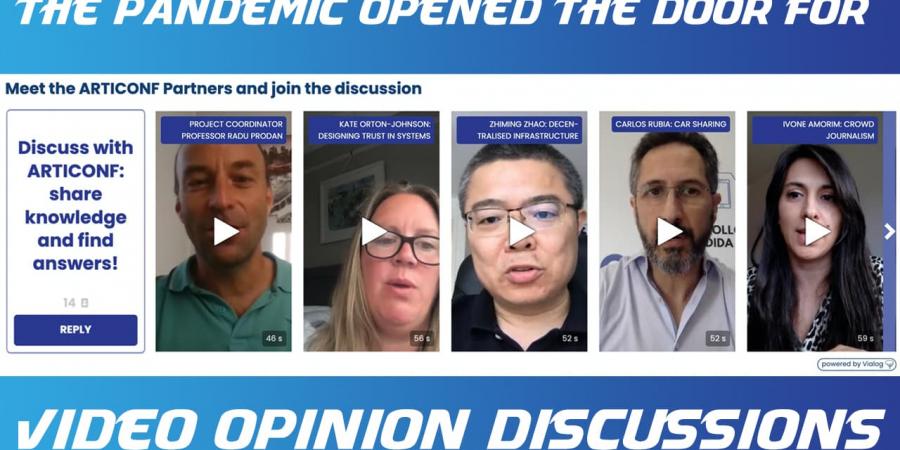[Video opinion discussion Use Case] The pandemic opened the door for video opinion discussions

You can read more stories from ARTICONF partners here: https://articonf.eu/blog
The pandemic opened the door for video opinion discussions
By forcing millions of people to stay at home and, for many, to work from home, 2020 saw a significant rise in the use of social media. The same year however highlighted the imminent problems social media is facing: lack of transparency, deficiencies of public control and dominance of information monopolies. From the very beginning, Vialog and ARTICONF are committed to the creation of a social media ecosystem that respects individual and social control, guarantees data privacy, interoperability and promotes a more just future of social media.
Globally, a considerable part of the challenges of 2020 relate to the need of ‘rewiring’ society, and rethink ways how we traditionally communicate and interact. Widely used methods of organising and running business, social and cultural events, meetings, teaching and learning, and shared decision making turned impossible, thus giving way to innovative and flexible solutions. Through new solutions, it became apparent that social interaction does not necessarily require participants share the same physical space. However, responses to this ‘restricted world’ also highlighted the importance of focusing on preserving human interaction, visual communication and data privacy.
The value proposition of Vialog has been to create video opinion discussions that can develop and engage communities by helping website owners convert their visitors to content contributors. Changing everyone’s ‘viewing’ status to ‘edit’ offers the chance to dramatically re-imagine engagement, induce co-creation of content and generate inclusion, encourage and respect transparency. Through the use of Vialog video opinion discussions, passive audiences become active co-creators of business, social and cultural events, participate in decision making and involve all stakeholders in developing a broader and more open format for virtual Q&As.
More often than not, the COVID-19 pandemic speeded up transformation processes that were already boiling in the pipeline anyway. Marketing people for a long time have been vying for channels that overcome the shortcomings of negative and often rapidly waning engagement through paid involvement in social media.